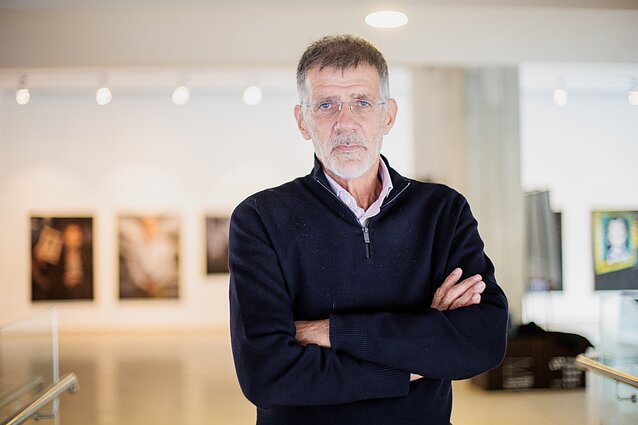
LRT.lt recently published the story of Israeli photographer Michael Shubitz. Prompted by the desire to understand his family’s history, he went to Kaunas, where he learned what his Jewish parents experienced during the Holocaust. With him he brought a photography exhibition which told the stories of other Kaunas Jews. Shubitz’s parents were both from Lithuania but met in Israel, where their son was also born 10 years after the end of World War Two.
In Israel, the couple found happiness, leaving behind the wounds of the past. According to Shubitz, he always knew that his parents came from Lithuania, but they rarely talked about the horrors of the holocaust they experienced. “When you grow up in Israel, you learn about the Holocaust at a very young age. It’s part of Israel’s existence. However, my parents chose not to tell us about their personal experiences,” Shubitz says. But at a certain point in his life, he became interested in his family history.
He always knew that his uncles – his dad’s brothers – lived in Vilnius. However, it was impossible to communicate with them while Lithuania was under Soviet occupation.
Shubitz managed to find his relatives in Lithuania in 2014 after contacting a woman who was married to one of his cousins. He finally visited Lithuania for the first time in 2016.
Uncovering the family history was like working on a jigsaw puzzle. His father had lived in Kaunas, studied at Kaunas University, and was involved in several Jewish student organizations. Here, he also met his first wife. Shubitz managed to find a woman who had lived in the Kaunas ghetto together with his father and his first wife, and told him about their tragic fate.
When the ghetto was closed, the women and children were transferred to the Stutthof concentration camp. In Kaunas’ ghetto, Shubitz’s father managed to join the Jewish police that was part of the resistance, helping people to escape the ghetto and take their children away. However, his father was eventually arrested by the Gestapo and sent to the 9th Fort of the Kaunas Fortress, where he was to be killed. Called by name, Shubitz did not answer, but said his name was Shultz, and was released.
Shubitz’s mother was born in Kaunas, a little girl when the Second World War started. Her family tried to leave Lithuania but could not cross the Soviet Union border. When they returned to their apartment in Kaunas, it was already occupied by neighbours. “They kicked my grandparents and my mother out of their own apartment. They threatened to kill them if they didn’t leave. Then, the family left for the town of Giedraičiai, my grandfather’s hometown,” Shubitz explains.
At that time, there were around 200 Jews and 200 Lithuanians living in Giedraičiai.
“In a small community, they all got along, worked together, went to school together. My grandfather probably thought that if he returned to Giedraičiai, nothing would happen to him there. But it wasn’t like that,” Shubitz says. His grandfather was murdered and his grandmother fled into the woods with his mother. Shubitz found the testimony of Giedraičiai residents, describing the murder of his grandfather by community leaders. His grandmother and mother had been hiding in the woods for three years. They had no shelter, but many people helped them survive. When the war ended they managed to get to Munich, Germany. Following the traces of his family history, Shubitz decided to also tell the stories of other Kaunas Jews who survived the Holocaust.
In October of this year, his exhibition “Back to Kaunas”, showcasing portraits of 12 Kaunas Jews who survived the Holocaust, was brought to Lithuania’s second-largest city. According to Shubitz, his exhibition in Kaunas symbolically brought its subjects back to their hometown. Although he blames Lithuanians for much of the painful family history, Shubitz considers himself to be Lithuanian and feels a strong connection to Kaunas.
The Lithuanian government restored his citizenship, which had been taken away from his family – and from many others.





























